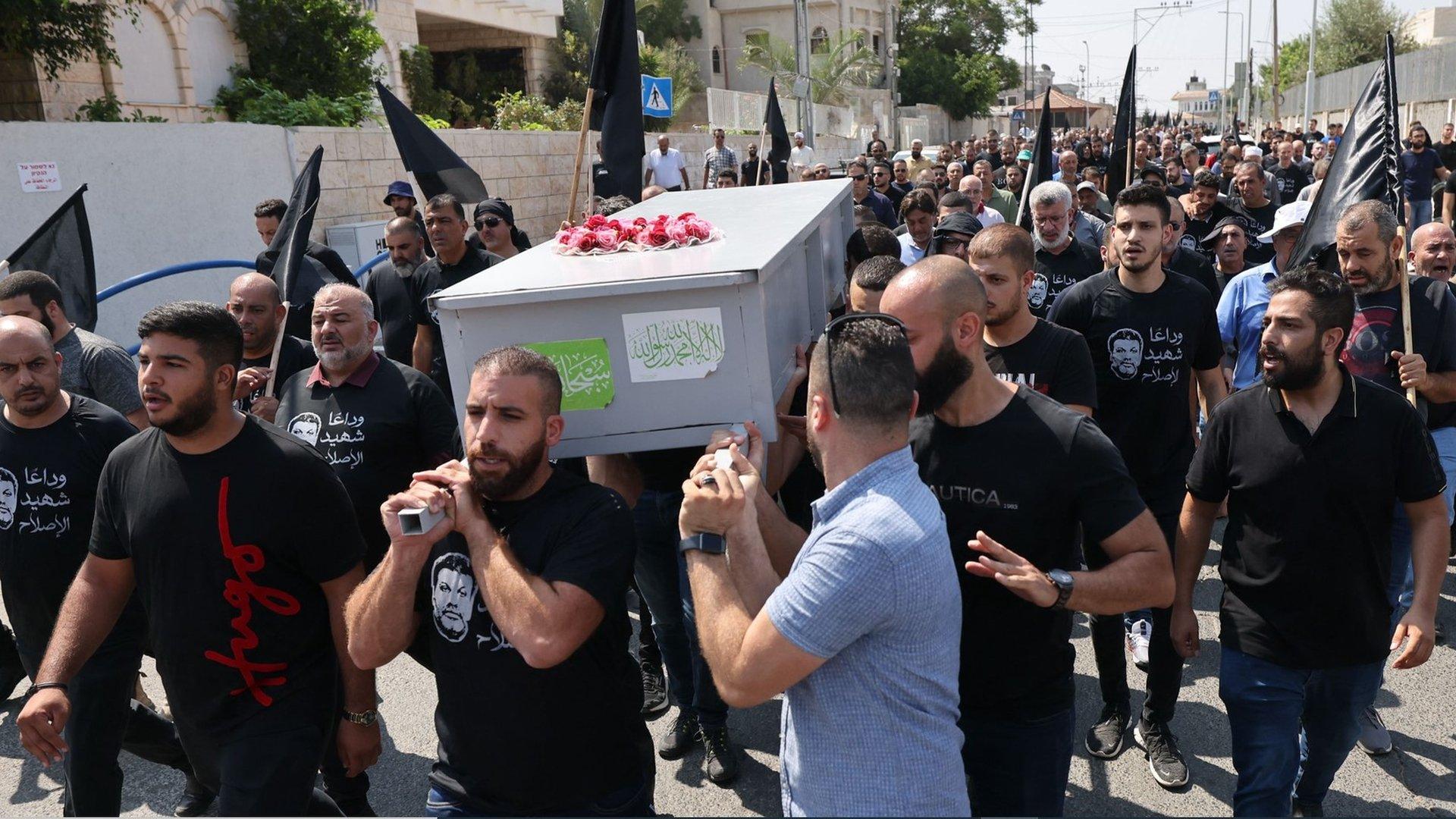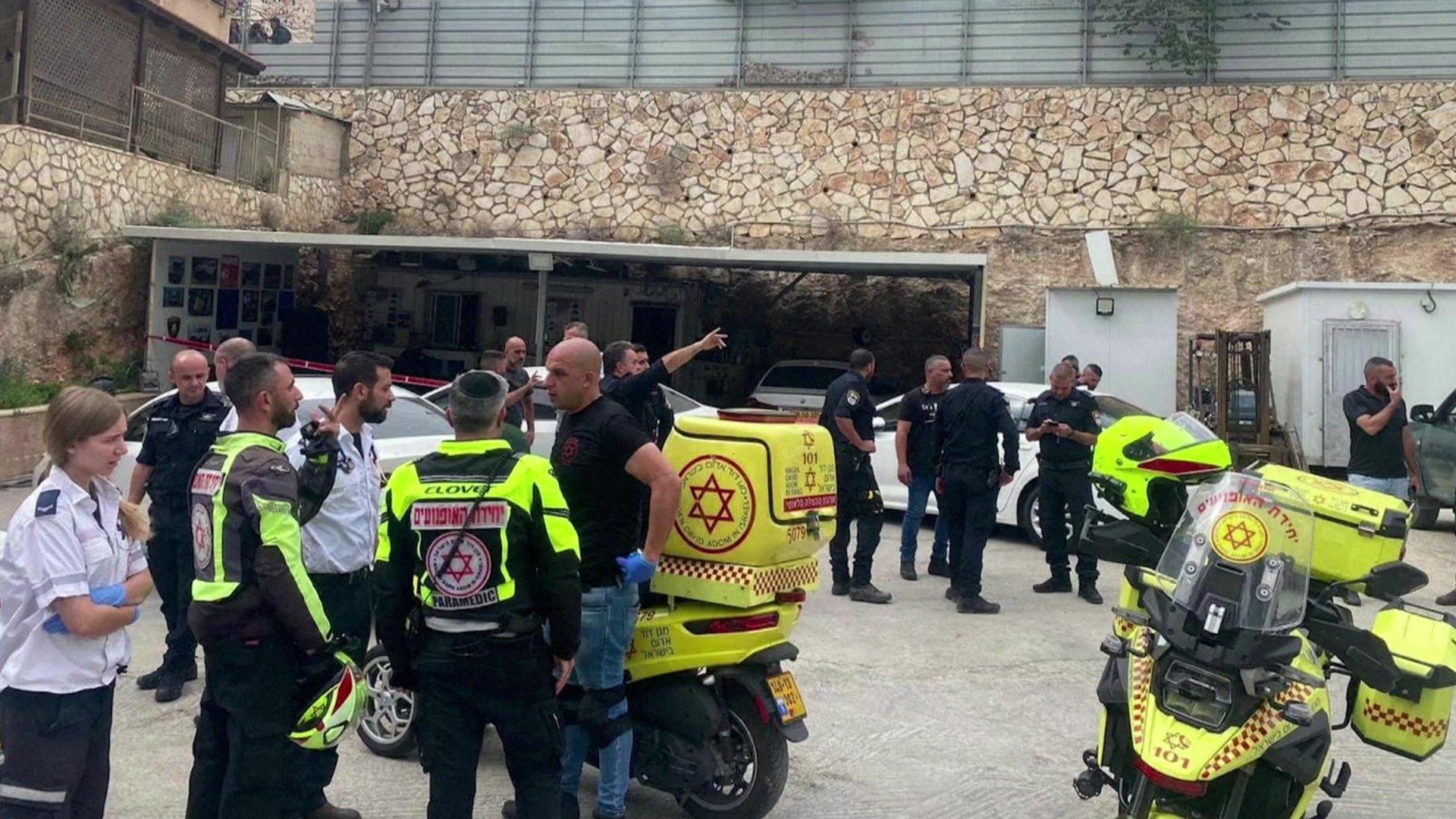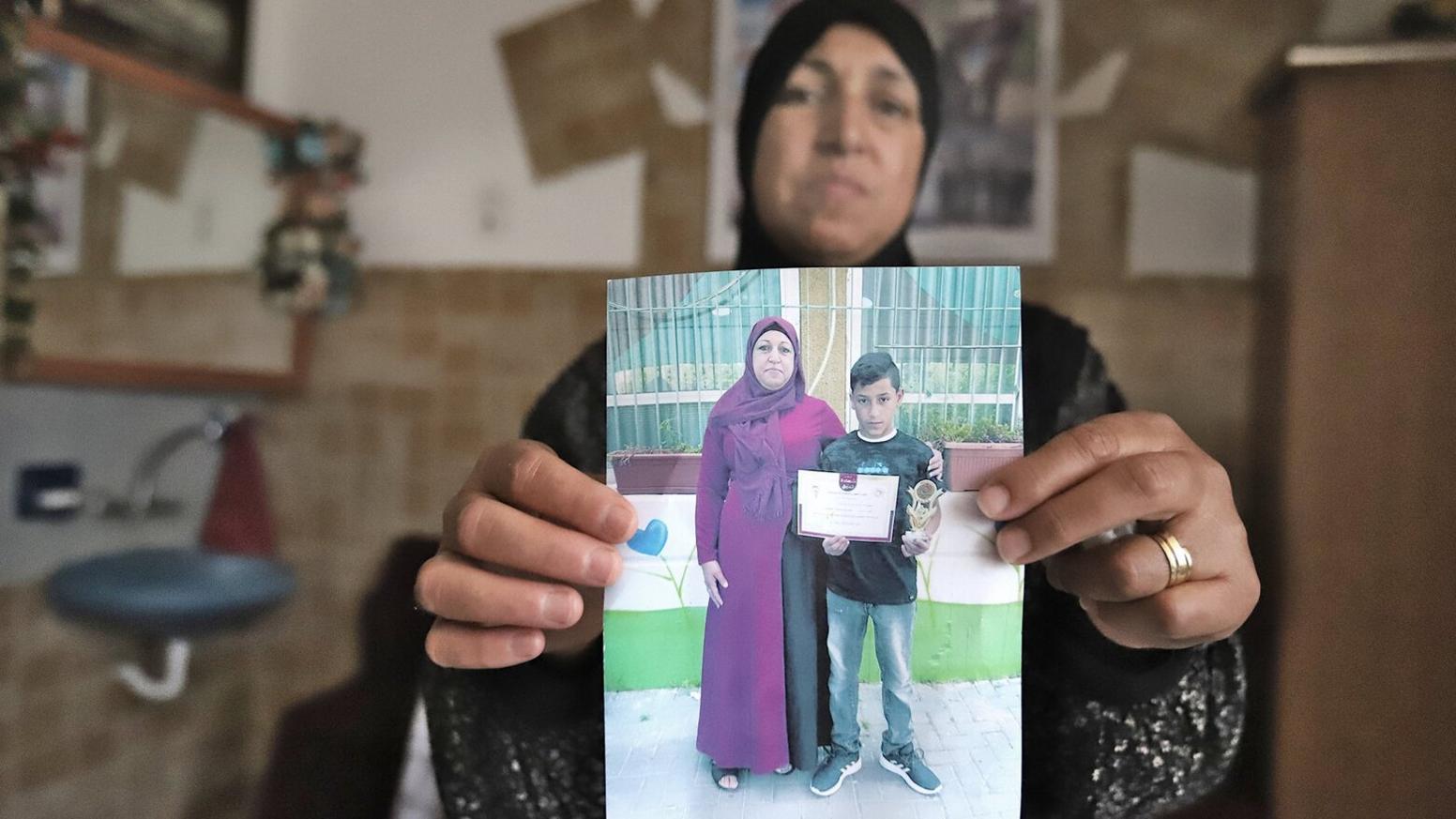Israeli Arabs demand action over spike in murders linked to organised crime
- Published

A funeral was held on Wednesday for Abdul Rahman Kashua, a top municipal official who was shot dead in the town of Tira
Israeli Arab groups are calling for an emergency session of the country's parliament, after the latest series of murders within the community.
Four men were shot dead in the Arab town of Abu Snan, in the northern Galilee region, on Tuesday.
Three were members of the same family, including a candidate for the local mayoral election.
Opposition politicians have blamed the government for failing to crackdown on organised crime gangs.
The bodies of the four men were found in a field after what paramedics said was a significant amount of gunfire.
One of victims was Ghazi Saab, a 53-year-old who had been due to announce his candidacy for Abu Snan's mayor later that day.
The others were identified as his nephews, Zaher al-Din Saab, 45, and Amir Saab, 28, as well as 66-year-old Salman Khalab from the nearby town of Yarka.
A cousin of Ghazi Saab told the Haaretz newspaper, external that he had been a senior Israeli Border Police officer and businessman, and that "the whole family is respectable". "He was one of five candidates for council head, but I don't think it's related," they added.
A police spokesperson also said there was no evidence so far connecting Mr Saab's candidacy to the murder.
Haaretz reported that hours after the shootings an 18-year-old Palestinian man was stabbed to death near the southern Bedouin town of Lakiya, external.
Police said they suspected a criminal motive behind the killing of Majid Faisal Dais, who was from the occupied West Bank.
On Monday night, the director general of the central town of Tira, Abdul Rahman Kashua, was shot dead next to the municipal headquarters and a police station.
The killings are believed to be connected to organised crime gangs within the Israeli Arab community, as a spiralling murder rate sends shockwaves through its population of around two million.
Almost 160 people have been murdered this year alone. That is already 40% more than the total reported in 2022 by the Abraham Initiatives, a group that promotes Israeli Arab and Jewish equality.
One political party - the Arab Movement for Renewal (Taal) - is demanding urgent action by the Israeli authorities, with many blaming a failure of representation and proper policing by the state.
The politics around solving the issue are becoming increasingly febrile.
A leading opposition MP blamed Prime Minister Benjamin Netanyahu for putting the police in the hands of Itamar Ben-Gvir, the far-right firebrand national security minister who has a history of anti-Arab racism.
"The Arab society is in crisis, and the prime minister is busy making empty promises," former Defence Minister Benny Gantz said.
Mr Netanyahu's office said the prime minister was convening his government taskforce to deal with it.
On Tuesday, he said the murder of Abdul Rahman Kashua had "crossed a red line" and vowed to use all means, including the Shin Bet security service, "in order to defeat this crime".
"We have eliminated organised crime in the Jewish sector in Israel and we will eliminate organized crime in the Arab sector in Israel," he added.
Mr Ben-Gvir released a lengthy statement on Wednesday that blamed the violence on "militias" within the Arab community, who he said would ultimately "turn their fire against the State of Israel".
He repeated his call for detention without trial for suspects and for the Shin Bet to detect organised crime. That has been taken to mean surveillance of Arab citizens suspected of crimes - a highly controversial suggestion which has reportedly been previously rejected.
Israeli Arabs - many of whom prefer to be called Palestinian citizens of Israel - make up a fifth of the country's population.
In theory, they have equal rights with Jewish citizens, but they routinely complain of state discrimination.
Related topics
- Published8 June 2023

- Published13 August 2021
